Unafraid, unabashed and unbelievably funny
These Indian comediennes are invoking their life experiences to present jokes that are bold, hilarious and thought-provoking.
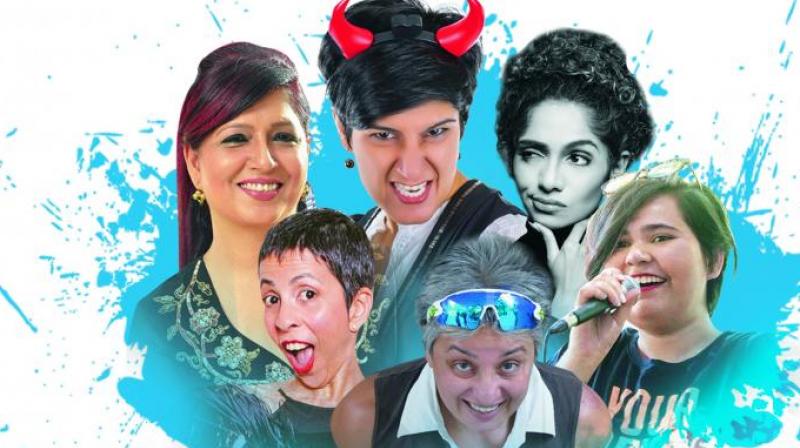
Indian female comics have never had it so good before. With the emergence of the female voice in comedy, topics that were once considered taboo are now on the table. Charlie Chaplin once quoted, “To truly laugh, you must be able to take your pain and play with it.” And this is exactly what these women are doing. With feminism as the secret weapon in their arsenal, these comediennes are tackling sensitive topics with their fearless comedy. From sexuality to pregnancy, menstruation to arranged marriage, stalking to rape, body weight to physical stereotypes and virginity, every issue is broken down with a generous dose of hilarity. Mallika Dua, Neeti Palta, Sumukhi Suresh, Vasu Primlani, Aditi Mittal, Punya Arora, Radhika Vaz and Savita Bhatti — these fiesty ladies have managed to play a big role in redefining comedy in a male-dominate industry.
Often drawing upon stereotypes to destroy sexism, it’s their unique content that has made them hugely popular. Be it Aditi Mittal’s videos on how women struggle with lingerie or Sumukhi Suresh, Kaneez Surka and Mallika Dua’s A Woman’s Besties (a video about female pleasure) or Vasu Primlani performance as a man from Delhi looking at a woman and singing a birthday song to her boobs, their humorous social commentary have gained them a loyal set of followers who savour intelligent comedy. If Mallika Dua’s Makeup Didi series deals with a woman who is very conscious of her looks, then Sumukhi Suresh’s web series Pushpavalli deals with stalking. And Primlani talks about mothers who are always worried sick about their daughters’ marriage prospects. Radhika Vaz jokes on a range of provocative issues — like the sexism in prevailing religious practices like Karva Chauth. Whatever the content may be these funny women use humour to rip patriarchy to shreds.
Not diplomatic and not sorry
Neeti Palta’s satirical brand of humor has found many takers in India
Stand-up veteran Neeti Palta jokes that Indian men don’t like her because she has that smell about her that puts them off — confidence. She prefers tongue-in-cheek kind of humour. A decision on their brand of content is taken by most comedians after several shows. “To me, comedy is a great way to sugar coat home truths. That’s what Birbal used to do for Akbar. I talk about whatever is bothering me at a given time. It’s sort of a personal outlet for me. I feel all comedy has a little bit of truth in it. Just the amount of truth varies. And I’ve noticed that the jokes that get the maximum laughs are the ones in which the audience recognises a truth. Then they are more open to laughing at themselves too. We are told to be demure, modest, quiet, and to make ourselves as attractive as possible. Stand-up comedy, on the other hand, rewards big, brash and vulgar personalities. It rewards women for being honest and tackling previously taboo subjects,” says Neeti.
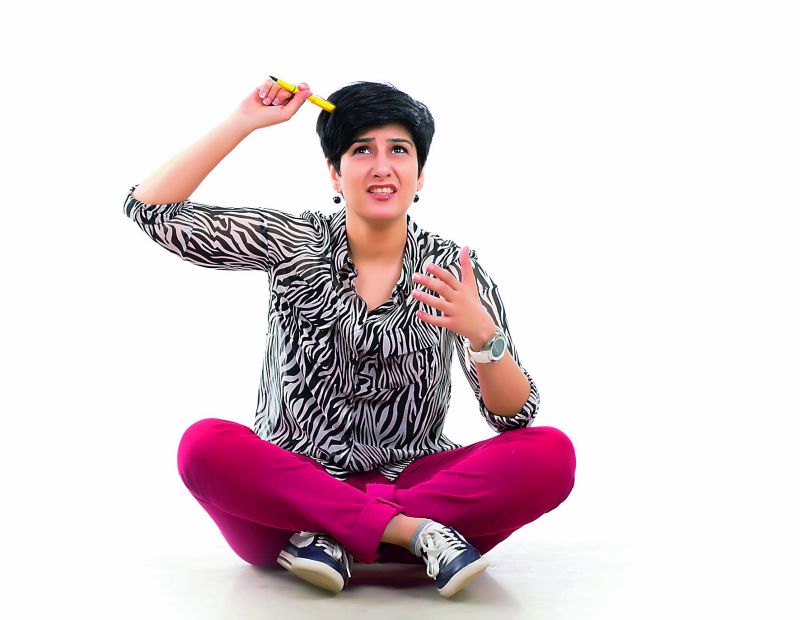
Neeti’s jokes range from male bashing to big fat Indian weddings, the Indian political scenario and even the pressure on women to have babies. And she can laugh at herself too. One of her favourite one-liners is, ‘My chin is divorced; it’s single again.’ “I remember a girl coming backstage after my show and asking me how, as a woman, I can make fun of women. I responded saying feminism is about equality and I can make fun of women as much as I make fun of men,” she says, referring to her bit on Indian men peeing in public and the money our government stands to make from fining them.
“There’s another one where I talk about our middle class mentality and how we hate throwing anything away. That’s why my grandma hates lingerie because she holds up my lacy underwear and comments ‘what kind of duster will this make’. That’s why India prefers male children, because their underwear makes better dusters,” she says. Thoughts on rape: She feels there is a lot of debate over a woman’s clothes and rape. “I think the only clothes that are rape-proof are clothes without women in them,” she says, adding, “A guy had once said to me in some other context, ‘Don’t take advantage of the fact that you’re a woman’. My response, ‘Why not? Someone will. Might as well be me!’”
Dealing with feminist issues
Radhika Vaz’s is using her humour to address taboo topics in the indian society
Radhika Vaz never identified as a feminist until she scripted her first comedy show Unladylike and followed it up with Older, Angrier, Hairier. She says, “I write about whatever makes me really angry, irritated and annoyed. I take that negative emotion and turn it into something I can laugh at. I am doing this mainly for self-preservation. If I didn’t make jokes, I would be a full-time assassin.” Radhika explains the different reasons why today’s comedians are tackling weighty subjects as well as what the future of comedy might look like. “I can’t speak for all the other comics but I am pretty sure it’s the same reason as mine — you see something unjust, suspicious, or downright disgusting and you want to say something. You want to fight it as well as try and change it or at the very least, bring attention to it,” she says.
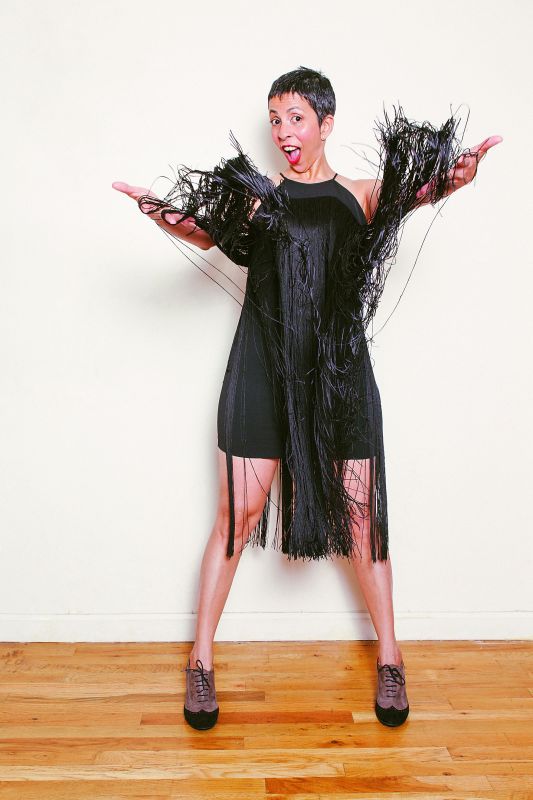 Radhika Vaz
Radhika Vaz
Radhika has written two shows, one book, a web series and countless columns and almost all of these are issue-based pieces. She elaborates, “Comedy is, to a large degree, about instinct. I think I have that instinct and so the bigger challenge is making sure the jokes are unique and not done to death.” Radhika believes stand-up comedy also opens a path to social change.“I for one will never stop talking about feminist issues. I know that even if it’s one person at a time, I can change people’s minds. Men and women alike have approached me after a show or after reading my column or book and tell me they had never thought about how bad sexism could be until then. That makes me very proud,” she says. Speaking about marital rape, Radhika says, “India is a country where marital rape is legal. However, bestiality is illegal. So my husband is more likely to go to jail for fornicating with a farm animal against its wishes than he is likely to go to jail for fornicating with me against mine.”
Nothing is sacrosanct for this humourist
Vasu Primlani is a comedian who isn’t afraid to speak her mind
Called ‘mischievous and defiant’ by the BBC, Vasu Primlani is one of the most courageous voices coming out of India. There are so many questions she has about India. Like why the horticulture department relies on Indian men to water the plants. “The other day I saw a man standing on the side of the road not doing anything, that guys standing on the sides of roads do. (Shows standing with hand cupping the groin). I was like ‘why? gir jayega kya?’” Nothing is sacrosanct for Vasu, who tackles issues under comedy that are scarcely spoken of in social circles but definitely need to be addressed. Subjects like rape are broken down by Vasu, a rape victim herself, who feels it’s important that comedians talk about the matters close to their heart.
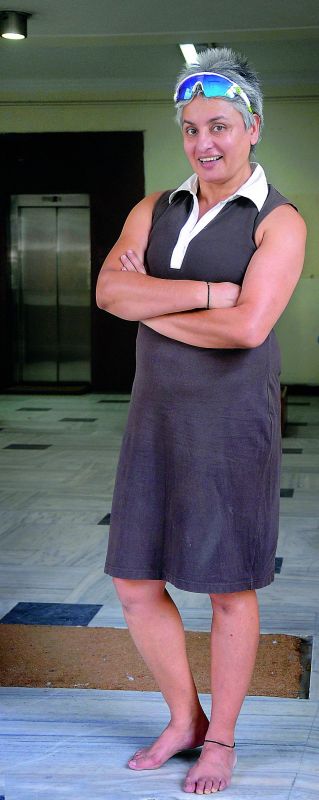 Vasu Primlani
Vasu Primlani
Vasu, a thinking person’s comic, adds, “The choice of subject has a lot to do with the maturity of the comedian. If you take the case of an amateur comedian, you are probably looking at a person who doesn’t have much of life experience. Such comedians will not generally pick up heavier subjects. I also don’t see that many comedians choosing weighty subjects that might be taboo for Indian society.” A child sexual abuse survivor as well, Vasu also works towards rehabilitating and rebuilding the lives of rape survivors and other people who have been through trauma in their lives.
“Anybody can make you laugh at the thought of somebody slipping on a banana peel. But can you make a joke out of something that is not just discussed in Indian society and is always shown in negative light? Once a female journalist challenged me, ‘How dare you make jokes about rape? Do you think that rape is a funny topic?’ But I am talking about it because we need to discuss it. The challenge is in making somebody laugh at a topic that is very, very serious.”
If something is negative, think of how much the artiste has to transverse to get you to laugh. She says, “It’s a balance and I have to improve myself as an artist to have people actually laugh about these things.”
Comedy is the most powerful tool, Vasu strongly believes, “From TV shows to Barack Obama, comedy is used everywhere to deliver messages. And any message, no matter how hard it is, is repeatable and memorable if comedy is used.” In one of her videos, she talks about teaching boys to respect women. “I am sick of people telling girls what to do to ward off rape. I say just look at your boys, if you are not raising them properly then they are a danger to women. Keep them at home and the women on the streets will be safe. Stop telling girls what to wear, where to go, which button to press in an elevator, etc. They should be free.”
Comedy to affect a societal change
Though a newbie in the comedy scene, Aayushi Jagad has made people sit up and take notice
Aayushi Jagad, who used to work for All India Bakchod (AIB), and Sumedh, who featured in one of their sketches, released a video recently where they broke down just how AIB “uses” feminism and even questioned whether its content was token feminist for the most part. While AIB has created women-centric or specifically feminist sketches like the Bollywood Diva Song featuring Kangana Ranaut or It’s Your Fault featuring Kalki Koechlin, the duo pointed out that in most of their other videos, the roles women are assigned mirror the kind of roles women are given in other popular media, often stereotypical or dispensable.
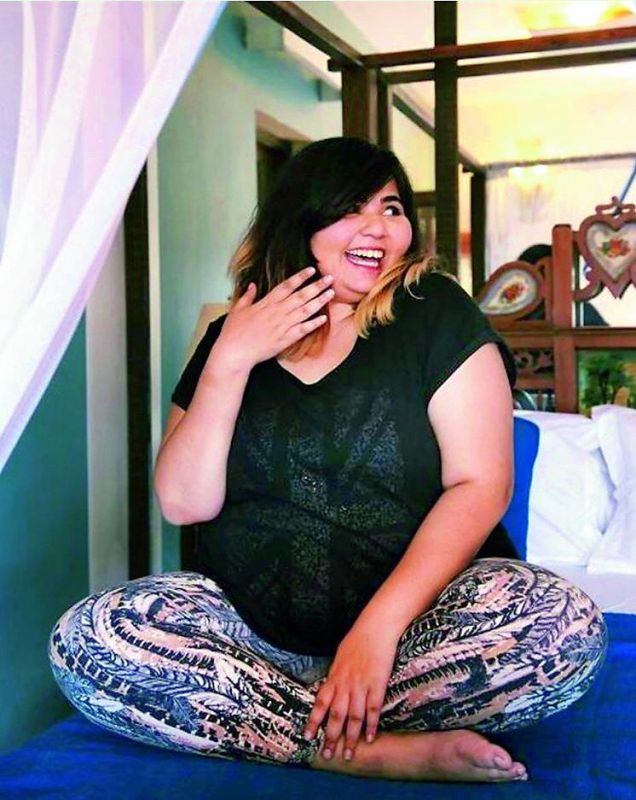 Aayushi Jagad
Aayushi Jagad
Aayushi doesn’t try to be political or dark in any way. She uses anecdotes from her life to connect with the members of the audience. “That way I don’t have to generalise and still get to talk about things that are important to me, yet not in a way that might hurt sentiments. Most of my material is silly and deeply rooted in personal experiences. I’m a very new comic and so I learn as I go.” Comedy at its very core is about empathy, feels Aayushi, one of the contestants on TLC’s Queens of Comedy — India’s first all-women comedy show. Aayushi has been challenging stereotypes and is absolutely unapologetic about everything — from the way she appears, to her sense of humour and the punches in her jokes.
“It’s a way of talking about difficult situations and working through feelings of sadness, conflict or awkwardness. Comics can be the voice of a generation, breaking down topics like politics, religion or sexuality, that would otherwise be difficult to do. I think they choose these topics to make sense of the world around them and to expose such issues. We choose weighty topics to offer our opinions on the matter so that the audience can see it in a new light and possibly change their perspective on one of the subjects. It’s not easy, especially in the current climate, to joke about politics freely. Our country tends to misunderstand our Constitutional right of freedom of speech. If that should escalate, it may make it harder for comics in the future to tell their stories,” she says.
The job of a comedian is to strike a balance between driving a seemingly heavy point and still managing to make it funny. “It would be difficult to assess how efficiently comedy impacts people’s opinions. There is so much noise and nonsense online, but most of it is just words. This is definitely an uphill battle. Comedy absolutely has the tools to bring about change if only we, as the audience, let it,” she explains. Stand-up can be and often times is, a path to social change, she agrees.
“We’ve seen it one too many times that stand-up generates a negative reaction from people — like the AIB Roast or more recently the backlash from Rahul Subramanium’s video about DJs. But a reaction of that magnitude, in my opinion, means one big thing. They are listening. It means that comedy in this country does have the power to reach people. As is the nature of social media, outrage will continue no matter what a comic says. In the meantime, we’ll just keep saying positive things about everything from equality to policy and little by little hope to make a difference,” she says, signing off on a hopeful note.
Subversive vibes
Savita Bhatti wants to make women laugh at themselves
Savita, the wife of celebrated comedian and satirist late Jaspal Bhatti, feels comedy is a full-time profession now. “So for sustenance, we comedians have to try and take on everything under the sun. But I believe the comedians of today are not moving to weighty subjects,” she says. Today, comedy is serious business. More and more stand-up comedians use the stage to speak their minds on grave social matters. Savita feels comedians approach every situation as artists. “I think if it affects our society as a whole, then one must definitely find a way to speak out. It could be anything from skyrocketing prices, to scams, to education and corruption. Literally anything and everything can be addressed,” she says, adding that every artist has her or his own trigger points.
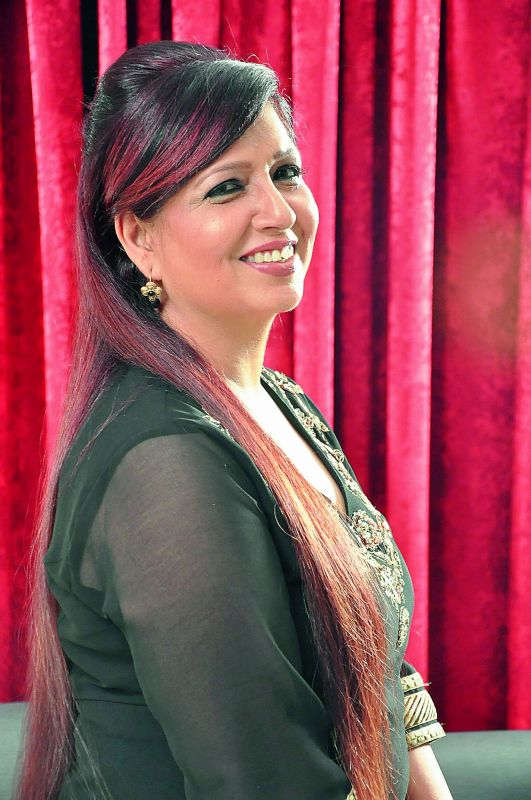 Savita Bhatti
Savita Bhatti
“And I think we have to be careful because people often think that being humorous about an issue means we are trivialising it. The common notion is that if you lecture about it and shout out loud for two hours, then you are looking for a solution,” says Savita. As girls we’re always taught to keep our voices lowered, to speak softly and be as invisible as possible. “So the guffawing and the boisterous laughing at jokes and all used to only be done by men. Society never gave us the freedom to enjoy humour. Laughter is the biggest gift to mankind. Let women learn to laugh first, then to laugh at themselves and I’m sure we’ll have an army of women comics,” says Savita.
Thoughts on women as commodities: Maybe it’s best if the government declares the woman as a commodity feels Savita. “By labeling the woman as a market item, it gives us the clearance to do anything with her — buy and sell her, trade her, molest her, hurt her, dispose her off for a newer model. Literally do anything.” Why not use the Constitution to incorporate such a change? she asks sarcastically. This can easily be achieved by the stock market, the media and the entertainment industry. She says, “This means we can do away with the campaigns to keep female foeticide in check. There will be no more hue and cry over the woman being treated like an ‘item’ in the media and entertainment industry and we can put an end to the protests on vulgarity in films and music videos.”
Winning hearts with wit
Jamie Lever Humour is all about dispelling the misconception that women aren’t inherently funny
Being the daughter of legendary comedian Johnny Lever, it comes as no surprise that Jamie is seriously skilled at making people laugh. Always one to have a humorous take on the problems faced by women, Jamie brings in a fresh perspective. “I was once told by someone that ‘women are just not funny’. It’s a mindset that people (both men and women) have in our country. I feel by doing what I do, I have proved them wrong. Now, I think people in general are warming up to the idea of funny women. Some of us women comedians have created our own space as well as a reputation in the industry that people just cannot overlook.”
 Jamie Lever
Jamie Lever
It’s a challenge each time she gets on stage because there is slight judgment in the air. But it takes this funny woman only a few seconds to break that and have her audience in splits. “It’s really rewarding to see people laugh and enjoy. So at the end of the day, if you have the talent and something really funny to say, you will survive,” says Jamie, whose comedy is a mix of recreating/enacting real or hypothetical situations. Her act also comprises lots of impersonations, acting, dancing and singing. “I try to balance it out with everything.”

